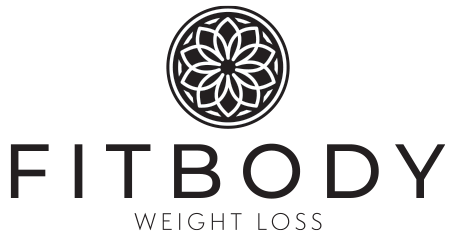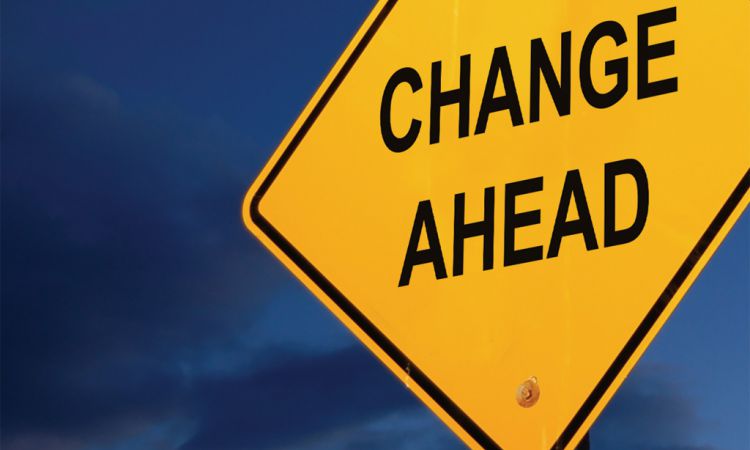Have you heard that popular saying of, “It only takes 21 days to break a habit”? We hear it all the time from proclaimed gurus in every field, sales advertisements and on book covers everywhere promising a major life change if you just follow their process for 21 days. My friend, I wish it were that easy and fast. If this saying were true everyone who ever made a New Year’s resolution to stop eating junk food and start exercising at 5:00am would have developed these new habits by January 21st. As we all know that usually is not the case.
Some experts may not like me bursting the “21 Day Bubble”, but I personally broke a very bad junk food habit that allowed me to lose over 100 pounds and 18 dress sizes. To break free of the obesity it took breaking several bad habits. I never ate breakfast, I drank very little water, I over trained with crazy workouts, starved myself most days, kept poor sleeping habits, lived stressed out and anxious, drank a six-pack of soda a day, loaded up on sugars and carbs, had a limiting belief that I was “big boned” and genetically destined for obesity, and hated all, yes ALL fruits and vegetables. I was one big bad habit mess! I overcame every single one of these bad habits and am now living in perfect health at my perfect weight, but it sure did NOT happen in 21 days!
As a woman with a few wins under her belt in the habit department, I must share with you two things today: Changing any habit will traditionally NOT happen in a measly 21 days and its most likely going to be hell. I went through 68 days of pure emotional and psychological hell of battling my will to be healthy! It was not easy, but it was worth it! To break a habit you have to be prepared to fight with everything you have and be willing to keep going, even when the going gets tough!
Before you think I’m a “Debbie Downer”, let me share my reason for busting the 21 day myth. I work with men and women all over the country who are on a mission to lose weight and get healthy. I too was on this same mission in 2007 after I found myself over 100 pounds overweight, suffering with several weight induced illnesses, such as Type 2 Diabetes, hypertension and hypoglycemia, and had not a single item left in my closet that I could wear. If my client expects to be completely free of all cravings and bad habits in just 21 days it’s a recipe for disastrous let down. There is nothing worse than unreasonable expectations to kill your motivation. You begin to doubt yourself and your ability to ever see success. The 21 day myth can kill your weight loss goals!
If you want to change a bad habit you have to be realistic and prepare for the fight you are about to face.
I will be honest, my first 68 days was pure craving hell! I cried, endured headaches, yelled at my amazing, loving husband, and even felt depressed at times because of how badly I wanted fried foods, sugary sodas and carb loaded, expensive iced coffee drinks! These 68 days I went through is what I call the Junk Food Detox Period. I have worked with thousands of individuals, young and old, from stay at home moms, to successful business owners to national recording artists, and not one has ever been able to detox from all the bad habits in 21 days! I kept a daily food journal in which I kept my food, water and activity intake and also documented how I felt during the process. It was not until day 68 that my habits began to give way to new healthier alternatives without the mental and emotional anguish or feeling deprived. From the beginning I changed my actions, but it took over two months of doing my new routine of healthy eating for it to become natural, emotionally acceptable and more lifestyle driven.
Research from the UCLA Health Behavior Research Center describe creating a new habit as when a person becomes mentally efficient in the new action. Meaning we are able to do something on a frequent basis, like brush our teeth or make a pot of coffee, without having to mentally think about it or exert mental effort towards it. The automation of frequent behaviors allows us to conserve mental effort that we would otherwise use to monitor and control these behaviors, and deploy them on more difficult or novel tasks. Let’s sum it up this way, if you’re at a restaurant and if ordering the grilled chicken garden salad is a mental battle, you have not yet created a new habit of doing such, but could if you continue to over time. Habits are likely to persist over time; because they are automatic and so do not rely on conscious thought, memory or willpower.
Researchers from UCLA have also conducted a more rigorous and valid study of habit formation (Lally, van Jaarsveld, Potts, & Wardle, 2010). Participants performed a self-chosen health-promoting dietary or activity behavior (e.g. drinking a glass of water) in response to a once-daily cue (e.g. after breakfast), and gave daily self-reports of how automatic (i.e. habitual) the behavior felt. Participants were tracked for 84 days. Automaticity typically developed indistinct pattern: initial repetitions of the behavior led to quite large increases in automaticity, but these increases then reduced in size the more often the behavior was repeated, until automaticity plateaued. Assumed that the point, at which automaticity is highest, is also the point when the habit has formed, it took, on average, 66 days for the new healthier habit to form. (To clarify: that’s March 6th for anyone attempting a New Year’s resolution.)
When working with individuals who would like to lose weight I always suggest a three month, all-out commitment to living healthy.
This means no cheats, skipping meals or giving in before the end of the 90 days. I found that typically if they will stick to it for 90 days they can stay with it for several years or even decades. My goal for helping people break bad eating and lifestyle habits is not a quick fix to drop a couple pounds, only to gain it back a few months later. No way! My mission is to help people transform their health by seeing long term results that span decades. This only happens by breaking bad habits and replacing them with new healthier ones.
In my own journey to breaking habits, in my first 68 days I dealt with a lot of stress induced emotional cravings- meaning I wanted foods not because I was hungry or needed the nutritional benefits. Typically, my response to stress was to eat some sort of sugary or salty treat. As I made a choice to get healthy, I had to change my actions. The next time my stress-o-meter was on overload I decided to try something new- running. Oh goodness, I hated running! I loathed the pain as my lungs burning with each ragged breath, the clammy feeling of sweat beading on my forehead and the shear forced of my 247 mass of fat giggling with each step! But I kept at it every time I felt a stressful situation creep up- which was basically every day. It took time, but after several months it was as if my flesh gave in to my desire to run and waived a white flag of surrender. After about three months I began to actually enjoy the running. Today, I love running and truly look forward to my three to five mike run each day. That’s a habit transformation!
I want you prepared for the fight to transform your bad habits. After all, a good fighter always understands his or her opponent. The hardest days of any habit breaking is going to be in the early stages. If you want to beat the habits, try utilizing these three steps I followed to make it through my 68 days of bad habit breaking hell:
1) Put on Big Girl Panties.
If you want to beat the cravings and see real success you must have “Bulldog Tenacity” that says once I start, stopping is not a option! I did not begin healthy eating as an option- it was my only option. It was my new way of life. I did not let myself have an excuse as to why it was ok for me to cheat or quit. On birthdays, our wedding anniversary or when my hormones were raging I did not give it in to hiding behind excuses. You must be mentally strong, even stubborn, in order to stick with it when times get tough.
2) Just A Bite is Not An Option.
When you allow yourself to take even one bite or sip it creates this frenzy in your chemical makeup. Research shows foods high in sugar and fat literally sends signals to the brain to begin gorging as a survival tactic. This is what happens to me when I eat fries. Those little sticks of salted, greasy goodness drive me crazy with food lust! Even if I manage to eat just one, I’m never satisfied. It always leaves me wanting more, more, more! We must control ourselves to say NO to bites!
3) Strip Away the Comparisons.
The problem with comparing is there will always be someone who loses. We all need to face the facts that there will always be someone who’s in better shape, eating healthier, working out longer and losing weight faster than we are. It doesn’t make all the effort and work we have been doing any less awesome! No two people are exactly alike and each will lose weight at different speeds. You need to stop comparing with others, and start looking to yourself for motivation. Focus on how far you have come and how you have really improved. When you focus on the good, you will get more if it. The more you focus on your weaknesses, you will get more of them as well.
The bottom line on breaking free of bad habits is this: Stay strong! Stay the course! And above all, please don’t cheat yourself and quit! The 21 days is a myth and new healthy habits are typically formed in about 60-90 days. Don’t stress out if it takes you even longer than that. The best estimate is 66 days, but it’s smart to allow yourself the freedom to keep going no matter how long it may take. As long as you continue doing your new healthy behavior consistently, your breakthrough will come!
Stick with it!


